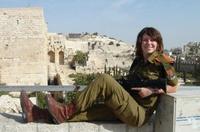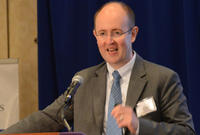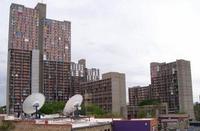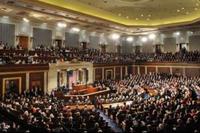-
Online tools help users adopt better privacy practices
Research shows a growing concern for online privacy, but Internet users give up personal information every day in exchange for the convenience and functionality of a variety of online services. Online privacy is distinct from online security, which encompasses efforts to mitigate the theft of personal information. Most violations of online privacy are not illegal but rather the results of tacit consumer consent. The new Privacy Helper mobile app teaches users about the features on their phones that can affect privacy. The key to Privacy Helper, its developers say, is its flexibility in giving users better control over how they share personal information.
-
-
Brainwashing and radicalization don’t explain why young people join violent causes
Why do young people from Western societies join ISIS? Terms such as “brainwashing” and “radicalization” are typically and casually invoked to explain the phenomenon. Suggestions of brainwashing or radicalization imply that the object of such efforts has been profoundly diverted from their usual, reasonable way of thinking. The instigators of this mental trickery are implicitly credited with considerable psychological skill, while the target is simultaneously assumed to have some mental insufficiency or vulnerability. The young are commonly deemed to be easy prey for those seeking to enlist them for a “radical” cause. The problem is, it’s just not that simple. Arguing that a 15 or 16-year-old is able to make a reasoned choice about engagement in hostilities risks exposing that young person to the full force of the law – but using loose, inadequate concepts such as brainwashing and radicalization to explain young people’s engagement in political violence carries its own risks. It severely limits our ability to understand why young people are mobilized in support of a group such as Islamic State, and hinders intelligent debate about the wider changes needed to prevent them doing so. Moreover our efforts to reintegrate them once they come back are likely to prove desperately inadequate.
-
-
Egypt thwarts terrorist attack on Israeli gas platforms in the Mediterranean Sea

Egypt said it had thwarted an attempt by Islamic State (ISIS)-affiliated Egyptian terrorists on 12 November to attack Israeli energy platforms in the Mediterranean Sea. The terrorists, members of the Ansar Bayt al-Maqdis terror group which operates in the Sinai Peninsula, commandeered an Egyptian navy missile boat for the planned attack. Other Egyptian navy vessels gave chase and stopped the commandeered missile boat, killing eight aboard in a heavy exchange of fire. In addition to attacking Israeli gas platform, the terrorists planned to attack Israeli ships.
-
-
Number of lone-wolf terrorist attacks in U.S. not rising, but police are targeted more often
Lone wolf terrorist attacks in the United States are not on the rise as popular culture might lead one to believe — but the attacks are changing for the worse, according to new research. The targets, weapons, and motives have changed in recent years. Before 9/11, these terrorists used bombs, but now high-velocity firearms are the weapon of choice, he said. The change might be a result of legislation enacted after the Oklahoma City bombing limiting the public’s access to bomb-making ingredients. Police and military personnel are now the preferred targets of modern lone wolf terrorists. Domestically, attacks on the power grid are the next big threat, the researchers say. Lone wolf terrorist Jason Woodring successfully downed the electric transmission system of rural Arkansas in 2013. His vandalism affected 10,000 people and cost $3 million in repairs.
-
-
Undocumented immigrants can now practice law in Florida
On 20 November, Jose Godinez-Samperio took the oath of admission to the Florida Bar, but unlike many lawyers before him, Godinez-Samperio was not a U.S. citizen.The state legislature amended an existing family law bill to allow would-be lawyers like Godinez-Samperio to practice law in Florida.
-
-
ISIS says it is holding an Israeli woman pilot hostage

The Canadian government said yesterday (Sunday) said it was looking into reports that a Canadian-Israeli woman who joined Kurdish militias fighting in northern Syria has been captured by Islamic State (ISIS) fighters. Gill Rosenberg, 31, a former pilot who served in the Israeli Defense Force (IDF), reportedly joined Kurdish troops fighting ISIS earlier this month. Reports said she contacted Kurdish fighters through the Internet, then traveled to the Kurdish areas in Iraq to train at one of their camps on the Syrian border.
-
-
What makes a terrorist stop being a terrorist?

The journey into and out of terrorism is as personal as it is complex. De-radicalization programs still represent some of the most creative approaches to counter-terrorism. They can be powerful forces in thinning the ranks of lower-level members. But if we do not have a sincere discussion of why or how they work, their future will be in jeopardy. With rumors of hundreds of disillusioned ex-ISIS members exploring a potential return home, we are already way behind. We need clear thinking to underpin these programs and their evaluation. In the absence of transparency and clearer expectations, it will only take one-high profile failure (would any program survive if one of its graduates detonated a suicide bomb closer to home?) for the potential of these programs to be lost forever.
-
-
Campaigning against radicalization in Minnesota’s Somali community

Between 2007 and 2008, roughly two dozen Somali young adults left their homes in Minnesota to join al-Shabaab, a Somali-based al-Qaeda affiliate. In the past year alone, at least fifteen Somali men have traveled overseas to join the Islamic State (ISIS) in Syria and Iraq. The U.S. Attorney in Minnesota, Andy Luger, met with Somali community leaders on Monday to outline a campaign that includes job creation and after school programs to combat the root causes of extremism.
-
-
Washington State police overwhelmed by public requests for dash- and body-cam footage

Police departments in Washington State are reviewing their dash- and body-cam programs as they see significant increase in public requests for video footage under the state’s Public Records Act, which puts no limit on the number of records which may be requested nor requires that the person requesting records have any connection to the information being requested.
-
-
CBP IA’s Janine Corrado and Jeffrey M. Matta leave agency for new positions
Janine Corrado and Jeffrey M. Matta are leaving CBP IA to assume other positions outside of CBP IA.Corradowill receive a promotion to the position of Chief of Staff for Gregory Marshall, Chief Security Officer at DHS. Matta will take a position in the Office of Field Operations at CBP. J. Gregory Richardson, who worked at CBP IA, complained that Corrado and Matta ignored his status as a disabled veteran despite extensive documentation of his medical condition.
-
-
San Francisco to add local groundwater to reservoir supply
The San Francisco Public Utilities Commission has begun digging in the area around Golden Gate Park with the intention of adding local underground water flows to the traditionally sourced water from the Hetch Hetchy Reservoir in Yosemite. The change is expected to take place over the next two years and will replace between 10 to 15 percent of the water supply. Despite the fact that the water is less pure, city officials expect that difference will be negligible.
-
-
U.K. government's sweeping new counterterrorism bill unveiled today
The U.K. government unveils today (Wednesday) sweeping new measures to combat extremism and terrorism, and tackle radicalization, in the United Kingdom. Among other measures, the new counterterrorism bill will require schools and universities to exclude radical speakers from their campuses, and give the home secretary the powers to deny entry (or re-entry) to the United Kingdom to U.K. British citizens suspected of involvement in terrorism-related activity abroad. These citizens’ travel documents will be cancelled and their names placed on no-fly lists for up to two years. Home Secretary Theresa May said: “We are engaged in a struggle that is fought on many fronts and in many forms. It is a struggle that will go on for many years. And the threat we face right now is perhaps greater than it ever has been. We must have the powers we need to defend ourselves.”
-
-
Impasse in Congress over terrorism insurance (TRIA) renewal

The Terrorism Risk Insurance Act(TRIA) is expected to expire by 31 December unless Congress renews the legislation or places a temporary extension. The legislation, initially established in November 2002 as a federal backstop to protect insurers in the event an act of terrorism results in losses above $100 million, has been extended and reauthorized. The insurance industry supports the reauthorization approved by the Senate, and opposes a short-term extension. Some insurance companies have noted on their contracts that policyholders could lose terrorism coverage if TRIA is not renewed.
-
-
A malware more sophisticated than Stuxnet discovered
Security experts at Symantechave discovered the world’s most sophisticated computer malware, Regin. Thought to have been created by a Western intelligence agency, and in many respects more advanced than Stuxnet — which was developed by the U.S. and Israeli government in 2010 to hack the Iranian nuclear program — Regin has targeted Russian, Saudi Arabian, Mexican, Irish, and Iranian Internet service providers and telecoms companies. “Nothing else comes close to this … nothing else we look at compares,” said one security expert.
-
-
Obama’s executive action may divert resources from handling legal immigrants

Critics of President Barack Obama’s executive order on immigration are worried that shifting immigration resources from work done on behalf of legal immigrants to applications filed by those in the country illegally would discourage future immigrants from entering the United States legally.A former federal immigration official compares the new immigration effort to the 2012 Deferred Action for Childhood Arrival program (DACA), which drew more than 600,000 applications from Dreamers.One of the effects of DACA was an increase in the wait time for green cards for immigrant spouses of U.S. citizens from five months to fifteen months, which critics blame on personnel being diverted to work on the DACA program.
-
More headlines
The long view
What Does Netflix’s Drama “Adolescence” Tell Us About Incels and the Manosphere?
While Netflix’s psychological crime drama ‘Adolescence’ is a work of fiction, its themes offer insight into the very real and troubling rise of the incel and manosphere culture online.
A Shining Star in a Contentious Legacy: Could Marty Makary Be the Saving Grace of a Divisive Presidency?
While much of the Trump administration has sparked controversy, the FDA’s consumer-first reforms may be remembered as its brightest legacy. From AI-driven drug reviews to bans on artificial dyes, the FDA’s agenda resonates with the public in ways few Trump-era policies have.
The Center Can Hold — States’ Rights and Local Privilege in a Climate of Federal Overreach
As American institutions weather the storms of executive disruption, legal ambiguity, and polarized governance, we must reexamine what it means for “the center” to hold.
How to Reverse Nation’s Declining Birth Rate
Health experts urge policies that buoy families: lower living costs, affordable childcare, help for older parents who want more kids
Foundation for U.S. Breakthroughs Feels Shakier to Researchers
With each dollar of its grants, the National Institutes of Health —the world’s largest funder of biomedical research —generates, on average, $2.56 worth of economic activity across all 50 states. NIH grants also support more than 400,000 U.S. jobs, and have been a central force in establishing the country’s dominance in medical research. Waves of funding cuts and grant terminations under the second Trump administration are a threat to the U.S. status as driver of scientific progress, and to the nation’s economy.
The True Cost of Abandoning Science
“We now face a choice: to remain at the vanguard of scientific inquiry through sound investment, or to cede our leadership and watch others answer the big questions that have confounded humanity for millennia —and reap the rewards.”
